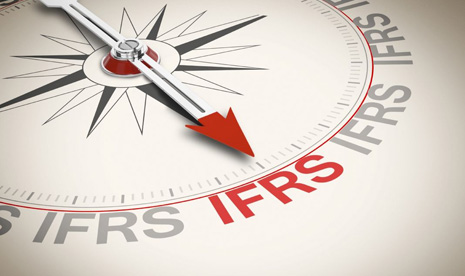IFRS ADVISORY SERVICES
IFRS Advisory Services in Dubai, UAE
IFRS ADVISORY SERVICES
IFRS Advisory Services in Dubai, UAE
IFRS Advisory Services in Dubai, UAE
IFRS (International Financial Reporting Standards) or International Accounting Standards plays a very crucial role in financial reporting as countries across the globe followed IFRS for the preparation and presentation of the financial statements.
IFRS is the globally accepted Accounting standard so that company accounts prepared based on IFRS are more understandable and comparable. The adoption of IFRS standards will help the entities to simplify the accounting processes and improve efficiency.
In order to cope up with the requirement of new challenges in the economy or to rectify the possible errors, or for a better presentation of the financial statements from time to time, the IASB
- Either issue new IFRS
- or reissue the existing standards with suitable modifications..
Such newly issued or reissued IFRS will always be specifying the date from which it will be effective be considered in the financial statements.
The effect of International Financial Reporting Standards (IFRSs) needs to be assessed to understand the impact on – recognition, measurement, and disclosure on revenue, expenses, assets, and liabilities to an entity when a new standard or revision in existing standards taken place.
The increasing complexity of financial reporting and the rapid pace of change has led to a significant increase in demand for high-level accounting advice from an expert in the field. Our efficient and expert advisory team will help the businesses for the easy adoption and implementation of IFRS standards.


Impact analysis of adoption and implementation of new/revised IFRS standards
IFRS implementation impacts key decisions across organizations. New IFRS requirements lead to reassessment of financial contracts where a new recognition model may be warranted. With the finance-driven nature of businesses, impact on recognition triggers a chain reaction across accounting, tax, and regulatory frameworks. A careful study and proactive planning can help in managing such changes effectively.
Why is it crucial to commence an IFRS impact assessment?
Understanding the implications of IFRS is essential to maintain accurate financials and maintain investor confidence. It ensures transparency and aids in better decision making. Early planning reduces risks and supports smooth transitions.
IFRS 15 – Revenue from Contracts with Customers
IFRS 15 establishes a framework for revenue recognition based on a 5-step model. It helps businesses recognize revenue in a way that reflects performance obligations and contract terms.
- Identify the contract with the customer.
- Identify the performance obligations.
- Determine the transaction price.
- Allocate the transaction price to performance obligations.
- Recognize revenue when performance obligation is satisfied.
IFRS 16 – Leases
Under IFRS 16, most leases are brought onto the balance sheet, creating a single lease accounting model. Key changes include:
- Right-of-use asset recognition.
- Lease liability recording for future lease payments.
- Elimination of operating lease classification (except for low-value/short-term).
- Impact on EBITDA and financial ratios.
IFRS 9 – Financial Instruments
IFRS 9 governs classification, measurement, and impairment of financial instruments. It affects how banks, financial institutions, and corporates assess credit risks and recognize expected credit losses.
- Business model-based classification.
- Forward-looking expected credit loss model.
- Volatility in earnings due to fair value adjustments.
IFRS 17 – Insurance Contracts
IFRS 17 replaces IFRS 4 and sets a comprehensive accounting model for insurance contracts. It enhances comparability and transparency in financial statements of insurance companies.
It aligns with general measurement models or premium allocation approaches depending on the nature of contracts and significantly impacts KPIs, profit emergence, and operational systems.

Other IFRS Advisory Services in the UAE
- Assistance in complex areas of IFRS GAAP
- Training on IFRS
- Implementation assistance for IFRS standards like IFRS 16, IFRS 9, and IFRS 15
IFRS ADVISORY SERVICES- FAQ
People usually ask
